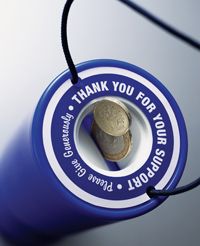The Role of the BBB
The 128 Better Business Bureaus (BBBs) in the United States and Canada represent unbiased sources of information on the trustworthiness of local businesses and charities. The bureaus collect information on more than 3 million North American organizations --private, public, nonprofit, online and offline -- and publish the data in reliability reports on businesses and BBB Wise Giving guides on charities.
The role of the BBB isn't to judge the quality of a company's products or services, nor is it to recommend certain companies over others. In this way, it's the opposite of a chamber of commerce, which exists to promote local businesses and lobby government for pro-business legislation.
Advertisement
The primary job of the BBB is to make information available to consumers about businesses in their communities. Potential customers can find out which companies respond quickly and satisfactorily to consumer complaints, which companies have a history of ignoring or mistreating customers, and which businesses have received BBB accreditation.
BBB accreditation is the same as being a member of the local BBB. For a company to be accredited by its local BBB, it needs to comply with the bureau's ethics standards for advertising, consumer privacy protection, and overall honesty and integrity. An accredited company also must pay annual dues, which range from $200 to $10,000 a year depending on the size and nature of the organization [source: Parmar]. BBBs are financially supported almost entirely by member dues and corporate partnerships.
Better Business Bureaus collect information on all businesses -- whether they're accredited or not. BBBs also process consumer complaints against both accredited and nonaccredited companies. If a consumer is unsatisfied with how he was treated by a local business, he can either go online or call his local bureau and file a complaint. The BBB will forward the complaint to the business and initiate the resolution process. Better Business Bureaus claim to resolve 70 percent of consumer complaints.
The value and effectiveness of BBBs is based on trust, transparency and neutrality. In 75 years of service, Better Business Bureaus have built a brand name synonymous with trust. Seventy percent of consumers say they would be more likely to buy from a BBB-accredited business, and 84 percent of consumers believe that such accreditation means that a company meets high standards of trustworthiness [source: Council of Better Business Bureaus].
Better Business Bureaus claim to treat all parties equally in complaint investigations and disputes, regardless of whether they are dues-paying members, nonaccredited businesses or consumers. This neutrality, they say, is what makes them such effective arbitrators.
As we'll discuss in more detail later, some critics of Better Business Bureaus claim that it's impossible for BBBs to remain neutral because they're financially supported by accredited businesses and corporate partners. In other words, how can you serve both the consumer and the business owners equally if your existence depends on those same business owners?
Keep reading to find out exactly how businesses become accredited members of a Better Business Bureau.
